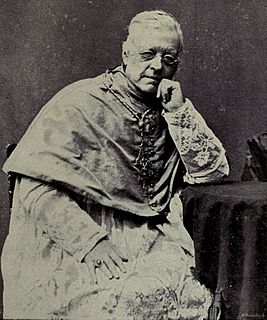A Quote by Ambrose Bierce
UGLINESS, n. A gift of the gods to certain women, entailing virtue without humility.
Related Quotes
My parents gave me the gift of irreligion, of growing up without bothering to ask people what gods they held dear, assuming that in fact, like my parents, they weren't interested in gods, and that this uninterest was 'normal.' You may argue that the gift was a poisoned chalice, but even if so, that's a cup from which I'd happily drink again.
If love is the soul of Christian existence, it must be at the heart of every other Christian virtue. Thus, for example, justice without love is legalism; faith without love is ideology; hope without love is self-centeredness; forgiveness without love is self-abasement; fortitude without love is recklessness; generosity without love is extravagance; care without love is mere duty; fidelity without love is servitude. Every virtue is an expression of love. No virtue is really a virtue unless it is permeated, or informed, by love.
The least known among the virtues and also the most misunderstood is the virtue of humility. Yet, it is the very groundwork of Christianity. Humility is a grace of the soul that cannot be expressed in words and is only known by experience. It is an unspeakable treasure of God, and only can be called the gift of God. Learn, He said, not from angels, not from men, not from books; but learn from My presence, light, and action within you, that I am meek and humble of heart, and you shall find rest to your souls.
An essential virtue is humility. ... The principle of humility and prayer leads one to feel a need of divine guidance. Self-reliance is a virtue, but with it should go a consciousness of the need of superior help-a consciousness that as you walk firmly in the pathway of duty, there is a possibility of your making a misstep; and with that consciousness is a prayer, a pleading that God will inspire you to avoid that false step

































